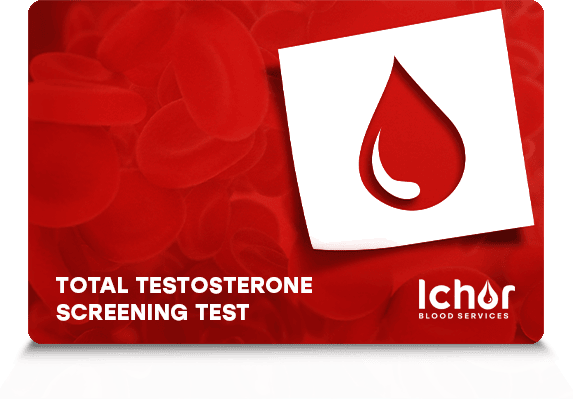
What Is It?
TTST screening, also known as Testosterone, Total, S is a simple blood test used to determine the levels of testosterone in both males and females. Testosterone is a sex hormone produced in the testes and the adrenal gland in men and in the ovaries and the adrenal gland in women. In men testosterone regulates muscle mass and strength, bone mass and fat distribution, libido, and the production of sperm and red blood cells. In women testosterone is converted into estrogen and plays a role in libido and fertility, and bone, breast, menstrual, and vaginal health.
Who Is It For?
Testosterone screening for males is useful in:
- Evaluating men with symptoms of lower libido, erectile dysfunction, infertility, gynecomastia (development of breast tissue), and osteoporosis
- Assessing boys for early (precocious) or delayed puberty
- Monitoring the effectiveness of testosterone replacement therapy
- Monitoring anti-androgen therapy (when used in the treatment of prostate cancer, precocious puberty, transgender disorders, and more)
Testosterone screening for females is useful in:
- Evaluating for hirsutism (excessive growth of hair), masculinization, and infrequent menstrual periods
- Evaluating women with symptoms of testosterone deficiency
Testosterone screening can also be used in the assessment of infants with ambiguous genitalia and in the diagnosis of androgen-producing tumors.
Why Is It Important?
For men, abnormal testosterone levels could indicate a tumor in the testes or in the adrenal glands. Low levels could indicate a problem with the pituitary gland resulting in issues with growth and fertility.
In women, high testosterone levels could indicate polycystic ovary syndrome (PCOS), a leading cause of infertility. High levels could also indicate ovarian cancer or cancer of the adrenal gland. Low levels could indicate a pituitary disorder such as Addison disease.
In younger males, abnormal testosterone could indicate cancer of the testicles or adrenal glands, or injury to the testicles leading to early or delayed puberty
